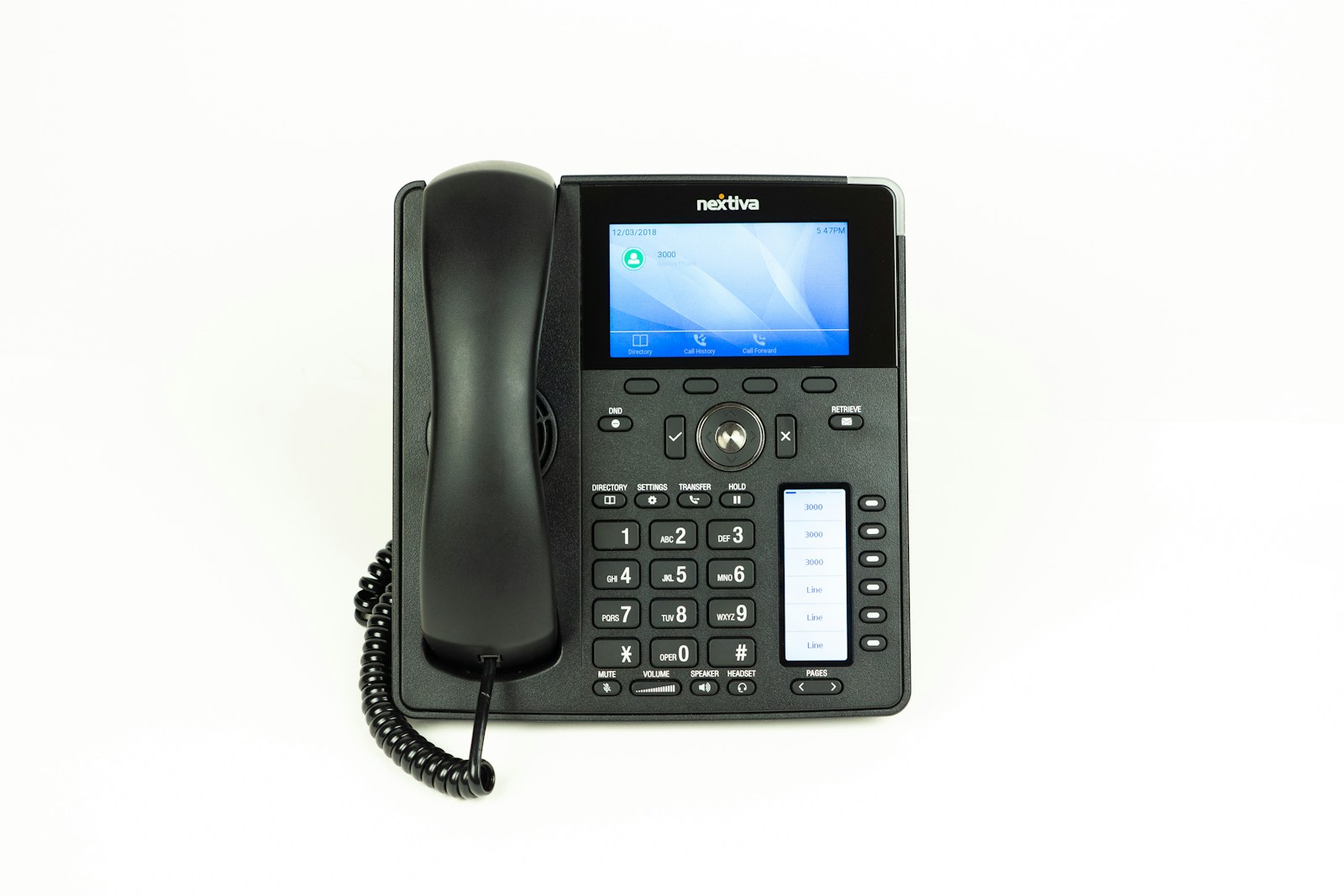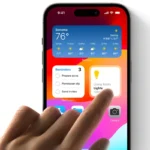Finding the right phone system for your business can be tough. A good virtual phone service helps you talk to customers and team members no matter where you work. The best virtual business phone systems offer features like call routing, voicemail, and texting without needing physical phone lines.
Many companies now use virtual phone systems instead of old desk phones. These services work through the internet and let you answer calls on your cell phone, computer, or tablet. They cost less than traditional systems and can grow with your business.
1. Nextiva
Nextiva is a leading provider of virtual phone systems for businesses. It offers a range of services that help small businesses and startups manage their communications effectively.
The company’s virtual phone system starts at $30 per month and includes unlimited calling and virtual phone numbers. This lets businesses free themselves from traditional phone lines and work from anywhere.
Small businesses can find great value with Nextiva’s phone service plans. These start at $18.95 and come with advanced features plus what they call their “Amazing Service” support team.
Nextiva has earned the trust of over 1 million users with its VoIP solutions. Their small business VoIP options include unlimited nationwide calling and are known for reliability and competitive pricing.
For companies looking to make the switch to internet-based calling, Nextiva provides a complete business phone system. This option costs hundreds less than traditional landlines while offering more features.
The system works by letting you make and receive calls using your internet connection. This means you can answer business calls from your computer, desk phone, or mobile device.
According to discussions among small business owners, Nextiva is considered excellent for larger companies. Some users note that while it offers comprehensive features, it might be somewhat complex for very small operations.
Nextiva’s platform includes features like call routing, voicemail, auto-attendants, and team messaging. These tools help businesses present a professional image regardless of their size.
The service is cloud-based, which means no expensive hardware or maintenance costs. Updates happen automatically, and the system can grow as your business expands.
Customer support is a highlight for many Nextiva users. Their service team is available to help with setup and any issues that might arise during daily use.
For small businesses looking for reliability in their phone systems, Nextiva’s virtual phone service offers a solution that combines modern features with ease of use.
2. RingCentral
RingCentral stands out as a trusted virtual phone system used by over 400,000 businesses worldwide. It offers a complete cloud phone system that lets users talk, text, meet, and even fax from one platform.
Setting up RingCentral takes just minutes, and it ensures you never miss important calls. The system works through one reliable app that keeps you connected wherever you go.
Small businesses benefit greatly from RingCentral’s business phone systems. The platform offers features designed specifically for smaller companies that need professional communication tools without the high costs of traditional phone systems.
RingCentral provides four different plans to choose from, with pricing based on the features you need. This flexibility makes it suitable for businesses of various sizes and budgets.
Many consider RingCentral the number one business communications solution in the market. Its reputation comes from years of delivering reliable service and continuously improving its offerings.
The company also offers virtual office phone numbers with a 15-day free trial. This gives businesses a chance to test the service before making a commitment.
As a VoIP service provider, RingCentral delivers reliable and secure communications. VoIP technology allows calls to be made over the internet, typically resulting in lower costs than traditional phone lines.
RingCentral streamlines workflows and simplifies communication for entire workforces. The all-in-one nature of the platform means businesses don’t need multiple tools for different communication needs.
The system works well for remote and distributed teams. Employees can use the same business phone system whether they’re in the office, working from home, or on the road.
3. Grasshopper
Grasshopper is a simple virtual phone system designed specifically for small businesses. It offers essential features like calls, texts, custom greetings, and extensions without requiring any hardware.
The system works through the cloud and connects to your existing phone number. This setup gives business owners the freedom to manage calls on the go without being tied to an office desk.
One big advantage of Grasshopper is its ease of use. Unlike traditional PBX systems, there’s no hardware required to get started. The service simply works on top of your current phone provider.
Small business owners appreciate the ability to get a virtual phone number that maintains a professional image. These numbers connect through the cloud to existing phones, making business management more flexible.
Texting functionality is another helpful feature. Customers can text your business number instead of calling, which many find more convenient. This option saves time for both businesses and their clients.
Grasshopper also handles inbound faxes. This feature helps businesses that still work with clients or vendors who use fax machines for document sharing.
The service offers various plan options to fit different business needs. Each plan includes the core features needed to establish a professional phone presence.
New users can try the system through a free trial period. This lets business owners test the features before committing to a paid plan.
For mobile-focused businesses, Grasshopper provides apps that turn personal devices into business phone systems. This means calls to your business number can ring directly on your existing smartphone.
Business owners wanting to learn more can visit the Grasshopper website to explore how the system works and which features might benefit their specific situation.
4. Zoom Phone
Zoom Phone is a cloud-based VoIP phone service that extends beyond Zoom’s video conferencing platform. It offers businesses a complete phone system with modern features that help teams stay connected.
The service includes unlimited domestic calls, SMS messaging, and voicemail transcription to help businesses manage communications efficiently. Users can also record calls when needed for training or record-keeping purposes.
Zoom Phone works across many devices including desktop computers, mobile phones, and SIP devices. This flexibility lets employees use the system wherever they work.
Security is a key feature of Zoom Phone. The service uses Transport Layer Security (TLS) to protect calls, making it a safe choice for business communications.
For small businesses, Zoom Phone offers an easy way to set up a professional phone system without complex equipment. The cloud-based approach means fewer hardware costs and simpler maintenance.
Pricing for Zoom Phone is straightforward with different plans to fit various business needs. Companies can choose options that match their size and calling requirements.
The system shines in call management features. It includes auto attendants to direct callers and call routing tools to ensure calls reach the right person. These features are particularly helpful for larger businesses that handle many calls daily.
User management in Zoom Phone is streamlined, making it easy for IT teams to add or change users. This simplifies administration as companies grow or change.
Zoom Phone integrates seamlessly with other apps businesses use daily. This connection between tools helps teams work more efficiently without switching between different programs.
For enterprise organizations, Zoom Phone enables communication from anywhere, supporting remote and hybrid work models. This flexibility helps companies adapt to changing work environments.
5. Dialpad
Dialpad stands out as a top choice for businesses seeking a virtual phone system. This platform offers more than just basic calling features.
Dialpad’s AI-powered collaboration platform combines phone calls, video conferencing, and messaging in one app. This integration helps small teams work better together without switching between different tools.
Small businesses can benefit from Dialpad’s pricing, which starts at $15 per month. They also offer a free trial period for companies wanting to test the service before committing.
The cloud VoIP phone service from Dialpad lets users make and receive calls from anywhere. This flexibility works well for remote teams or businesses with multiple locations.
One standout feature is the ability to send SMS/MMS messages through the same system you use for calls. This keeps all customer communications in one place.
Dialpad Connect ranks at the top of many business phone provider lists for 2025. The system works on various devices, so employees can use their computers, smartphones, or desk phones.
The virtual phone system includes video meeting capabilities. This feature eliminates the need for separate video conferencing software, saving both money and setup time.
Unlike some competitors that focus on larger organizations, Dialpad offers solutions sized right for small businesses. The interface is clean and straightforward, avoiding the complexity found in enterprise-focused systems.
Call quality remains reliable even with varying internet connections. This reliability matters for businesses that depend on clear customer conversations.
Teams can set up auto-attendants to direct calls efficiently. This feature gives even the smallest company a professional appearance when customers call in.
Dialpad’s mobile app performs well, allowing team members to take business calls on personal devices without sharing their private numbers. This separation helps maintain work-life balance while staying available to customers.
6. Vonage
Vonage offers small business phone systems that combine quality and affordability. Their plans start at just $13.99 monthly, making them accessible for businesses with tight budgets.
The company provides VoIP (Voice over Internet Protocol) services that let teams take calls from anywhere. This flexibility helps small businesses look professional without being tied to a desk.
Vonage stands out with its customization options. According to reviews, it’s the best choice for businesses needing tailored communication solutions. They offer more than a dozen add-ons and separate API options.
Small businesses can save money while improving customer service with Vonage’s virtual phone systems. These systems reduce common communication headaches and streamline operations.
Their VoIP phone service works as a software solution that elevates business communications. The system runs through internet connections rather than traditional phone lines.
Vonage partners with respected hardware manufacturers. They support phones from Panasonic, Poly, and Yealink, giving businesses multiple equipment options.
The service delivers enterprise-level communications without enterprise prices. Small businesses get features previously available only to larger companies, creating a more level playing field.
Users can answer calls on desk phones, mobile devices, or computers. This multi-device approach ensures teams never miss important customer calls, even when away from the office.
Setup is straightforward with minimal technical knowledge required. Most businesses can get running quickly without hiring IT specialists.
Vonage updates their systems regularly with new features. This keeps their service current with changing business communication needs and technology trends.
7. GoTo Connect
GoTo Connect is a cloud-based phone system that combines voice, video, and messaging in one platform. It works well for small businesses that need flexible communication tools. The system can grow as your company expands.
This service includes over 100 features to help run your business phone system smoothly. You get unlimited call routing and auto attendants that can direct calls without human help. They also offer a visual dial plan editor to set up your call flows easily.
Small businesses find GoTo Connect helpful because it provides unlimited phone numbers. You can set up virtual receptionists to answer calls professionally. Video conferencing comes included, which helps teams connect face-to-face.
The system works through VoIP technology, which means calls travel over the internet instead of phone lines. This often makes it cheaper than traditional phone systems. Many users praise its ease of use and security features.
GoTo Connect stands out for multisite management. If your business has several locations, this system can handle them all. It works well for both remote and office-based staff members.
The platform offers different pricing plans to fit various business needs. Each plan includes the cloud phone system with built-in meeting and messaging abilities. For specific pricing details, you may need to contact their sales team.
Business owners appreciate that GoTo Connect combines phone services with other communication tools. This integration helps streamline workflow and reduce the number of separate apps needed. The all-in-one approach saves time and reduces confusion.
For those concerned about cost, GoTo Connect markets itself as a cost-effective solution. Since you don’t need to buy expensive hardware, the initial investment is typically lower than traditional systems. Monthly pricing helps spread costs out over time.
8. Aircall
Aircall offers a complete virtual phone system for businesses. It works well for teams that need to handle many calls.
The system is easy to set up with no special hardware needed. Users can get started quickly without technical knowledge or expensive equipment.
Aircall lets businesses create toll-free numbers including 800, 888, 877, and other options. Companies can select numbers from over 100 international locations.
The platform connects with many popular business tools. This helps teams keep all their customer information in one place.
Small businesses find Aircall helpful because it’s a cloud PBX solution with simple setup. There’s no need to buy costly hardware or hire IT experts.
Aircall includes AI-powered features that can save time. The system can automate certain tasks and provide useful insights about calls.
Team leaders can track call data easily. This helps them improve how employees talk with customers.
The business phone solution offers a clean dashboard. Managing the system feels as simple as using email.
Businesses can get virtual phone numbers quickly. The service includes many features in the subscription price.
Aircall works well for call centers and sales teams. It helps staff stay connected whether they work in an office or remotely.
The service scales with growing businesses. Companies can add new users or phone lines as needed.
Customer support comes with the service. Users can get help when they have questions or problems.
9. Phone.com
Phone.com offers a virtual business phone system that helps small businesses manage their communications efficiently. The company focuses on providing affordable VoIP solutions with a range of features for business needs.
Users can get started with Phone.com for as low as $11.99 per month for basic plans. This makes it one of the more budget-friendly options for small businesses watching their expenses.
The service includes standard VoIP features like call routing, voicemail, and auto-attendants. Phone.com also offers advanced options such as video conferencing and text messaging capabilities (SMS & MMS) through their cloud-based system.
Small business owners appreciate Phone.com’s 30-day money-back guarantee. This allows companies to test the service without financial risk to see if it meets their needs.
Phone.com works well for businesses needing a scalable phone system. As a company grows, the service can adapt by adding more lines and features without requiring expensive equipment changes.
The platform provides good integration options with other business tools. This helps teams stay connected and maintain productivity across various communication channels.
Customer support is available to help with setup and troubleshooting. This can be especially helpful for small businesses without dedicated IT staff.
Phone.com delivers both voice and digital communication options in one package. Companies can communicate via traditional calls, video, or messaging based on their specific needs and customer preferences.
For businesses looking to project a professional image, Phone.com offers features like custom greetings and professional call handling. These tools help even the smallest companies appear more established to callers.
The virtual phone system works across devices, allowing employees to use desk phones, smartphones, or computers to stay connected from any location.
10. Ooma Office
Ooma Office stands out as a top choice for business phone systems. For ten years in a row, PC Magazine readers have ranked Ooma Office as the best business VoIP phone service.
This service offers clear, consistent, and affordable VoIP options. Businesses get over 50 great features included with their subscription, making it a complete package for communication needs.
Ooma’s PureVoice HD technology ensures high-quality calls. This means customers always hear you clearly, which helps maintain professional relationships.
Setting up Ooma Office is simple and quick. Users can download software on a PC or smartphone and start calling right away without desk phones. This flexibility works well for remote teams or businesses on the go.
The virtual phone system fits both small and large businesses. Companies can scale their phone service as they grow without changing providers.
Reliability ranks high with Ooma Office. Businesses need phone systems that work consistently, and Ooma delivers this essential feature.
Price points for Ooma remain competitive in the market. Small businesses appreciate the balance of features and cost, making it easier to budget for communications.
Customer service also plays a key role in Ooma’s success. When problems arise, their support team helps resolve issues quickly to minimize disruption.
Mobile capabilities enhance Ooma’s appeal. Staff can take calls anywhere using the mobile app, keeping everyone connected regardless of location.
For businesses seeking a proven, feature-rich phone solution, Ooma Office delivers the reliability and quality needed for daily operations. Its consistent top ratings reflect its value to businesses of all sizes.
Key Features of Virtual Business Phone Services
Virtual phone systems offer businesses powerful communication tools that go beyond traditional phone services. Modern systems include essential features that help businesses manage calls effectively and improve customer service.
Scalability and Flexibility
Virtual phone systems can grow with your business without requiring new hardware. You can add new users, phone numbers, or extensions quickly as your team expands.
Phone services let you take calls from anywhere using mobile apps or desktop software. This works great for remote teams or employees on the go.
Most providers offer pay-as-you-go plans that let you adjust services based on your needs. This helps avoid paying for unused features.
Call routing features direct incoming calls to the right person or department. You can set up rules based on time of day, caller ID, or department.
Auto-attendants answer calls professionally and guide callers to the right extension. This creates a professional image even for small companies.
Integration with CRM and Other Tools
Modern virtual phone systems connect with customer relationship management (CRM) software. This helps track customer interactions and access important information during calls.
When calls come in, CRM integration shows caller data on screen. This helps staff prepare for conversations and provide better service.
Many systems connect with email, calendars, and task management tools. This creates a smooth workflow between different business systems.
Some advanced features include:
- Call recording for training and quality control
- Voicemail-to-email or text conversion
- Text messaging capabilities
- Analytics and reporting tools
These integrations save time by reducing manual data entry and keeping customer information updated across all platforms.
Benefits of a Virtual Business Phone Service
Virtual phone services offer small businesses powerful tools without the high costs of traditional systems. They create a professional image while making it easier to manage calls from anywhere.
Cost Efficiency
Virtual phone systems help businesses save money in several key ways. Companies only pay for what they need, with flexible plans that can grow with the business.
There’s no need to buy expensive hardware or equipment. Most services work with devices employees already own like smartphones, tablets, and computers.
Setup is fast and simple compared to traditional phone systems. Businesses can be up and running in minutes rather than days or weeks.
Monthly costs are much lower than traditional business phone lines. Many providers offer plans starting at just $10-20 per user per month.
Maintenance expenses disappear since the provider handles all updates and technical issues. This eliminates the need for on-site IT support for phone systems.
Enhanced Communication Channels
Modern virtual phone services offer more than just voice calls. They include tools like video conferencing, text messaging, and team chat in one package.
Call management features help businesses look professional. Options like auto-attendants, call routing, and voicemail-to-email create a great impression with customers.
Virtual numbers can be set up for different departments or locations, making it easy to direct calls properly. This helps customers reach the right person quickly.
Teams can work from anywhere while staying connected. Calls can ring on multiple devices or follow employees wherever they go.
Most services integrate with popular business tools like CRM systems. This helps track customer interactions and improve service quality over time.
Frequently Asked Questions
Virtual phone services can save money and add helpful features for businesses. Here are answers to common questions about choosing the right phone system for your needs.
What are the top-rated virtual phone systems for small businesses?
The top-rated virtual phone systems for small businesses include Nextiva, RingCentral, and Grasshopper. These services offer reliable call quality and useful features like auto-attendants and call routing.
Nextiva stands out for its excellent customer service and all-in-one communication platform. RingCentral offers strong video conferencing tools alongside phone service. Grasshopper works well for very small businesses needing basic features at a lower cost.
Which virtual phone number provider offers the best value for small businesses?
Dialpad typically offers the best value with its AI-powered features and straightforward pricing. Their plans include unlimited calling, text messaging, and team messaging.
RingCentral also provides excellent value with their scalable plans that grow with your business. Grasshopper offers good value for solopreneurs and very small teams with simpler needs.
Zoom Phone can be cost-effective for businesses already using Zoom for meetings. Their bundle deals often save money compared to separate services.
How do virtual phone systems enhance small business communication?
Virtual phone systems add professional features like auto-attendants that greet callers and route them to the right department. This creates a more professional image for small companies.
These systems let employees work from anywhere while keeping the same business number. Call forwarding ensures customers can reach staff whether they’re in the office or working remotely.
Many virtual systems include team collaboration tools and CRM integration. This helps track customer interactions and improve service quality.
What are the most cost-effective virtual business phone services available?
VoIP phone services are generally cheaper than traditional landlines because they don’t require physical infrastructure. Most providers offer tiered pricing based on features and user counts.
Grasshopper provides simple plans starting around $26 per month for one number and three extensions. Dialpad and Nextiva offer competitive entry-level plans with more features for small teams.
Some providers charge per phone while others charge per channel (line). For most small businesses, per-phone pricing works better unless you run a call center.
Can you recommend any virtual phone systems that integrate well with iOS devices?
RingCentral offers excellent iOS integration with a well-designed mobile app. The app provides full access to calling, messaging, and video meetings from iPhones and iPads.
Nextiva’s iOS app also performs well, with easy access to business communications features. Their interface works smoothly on Apple devices and syncs easily with iOS contacts.
Dialpad and Zoom Phone both offer strong iOS apps with intuitive interfaces. These apps let iPhone users make and receive business calls while keeping their personal numbers private.
What should be considered when choosing a multi-line phone system for a small business?
First, determine how many phone lines and extensions your business needs.
Consider where your customers are located to ensure you choose a service with good coverage in those areas.
Check if you need to keep your current business phone number and whether the provider offers number porting. Most good services do, but sometimes there are fees involved.
Look at which software tools your team already uses, like CRMs or email.
The best phone system will integrate with these existing tools to create a smoother workflow.







